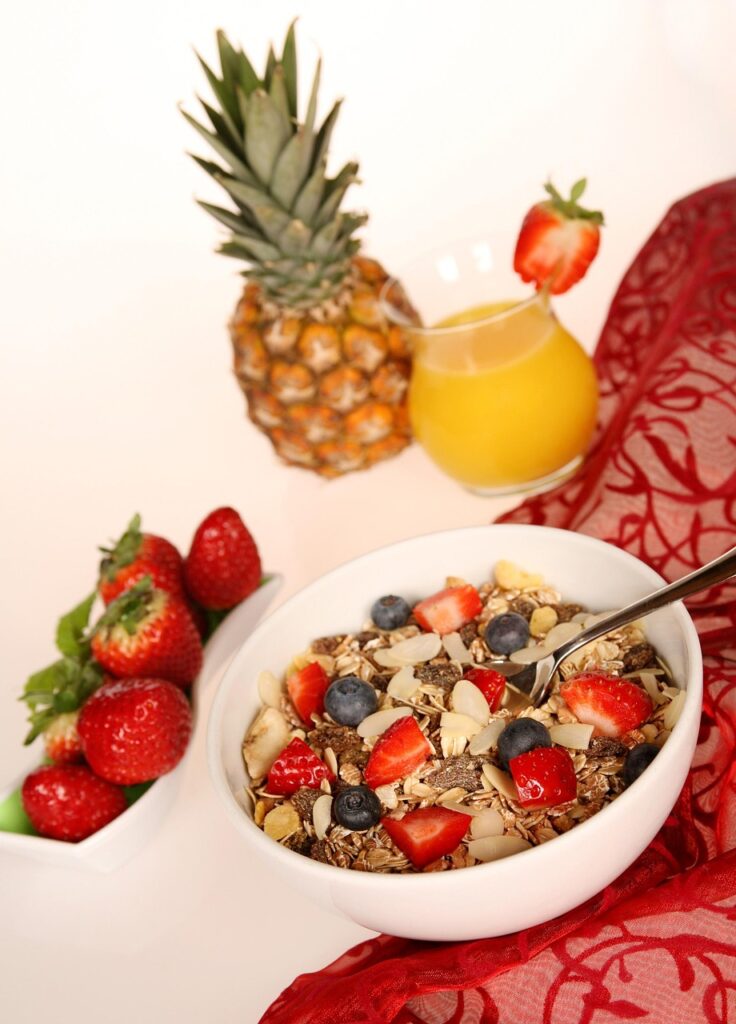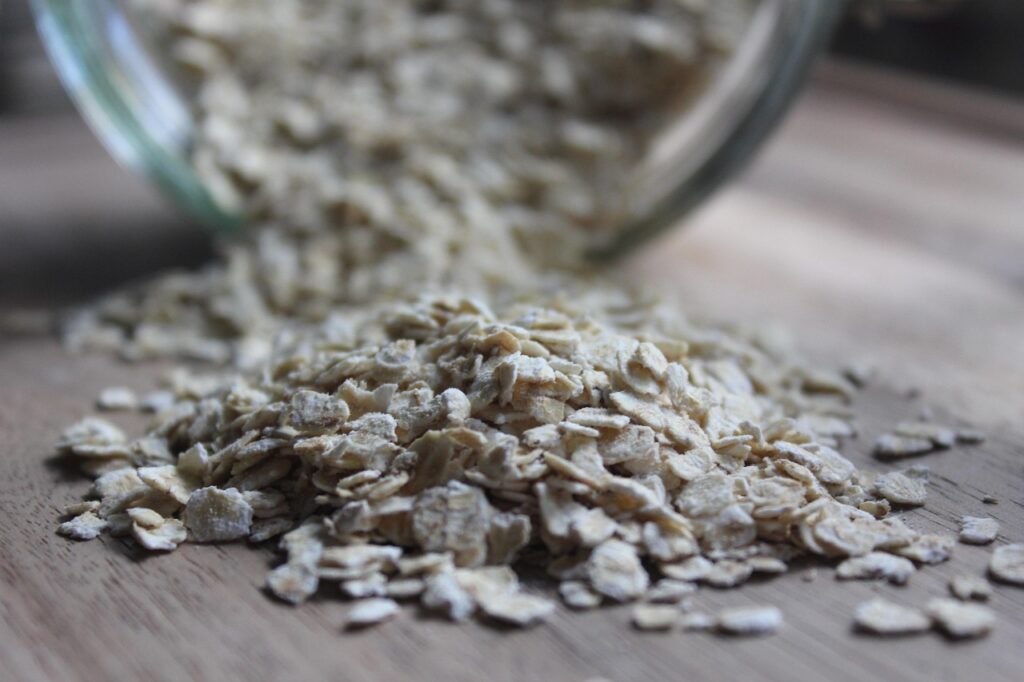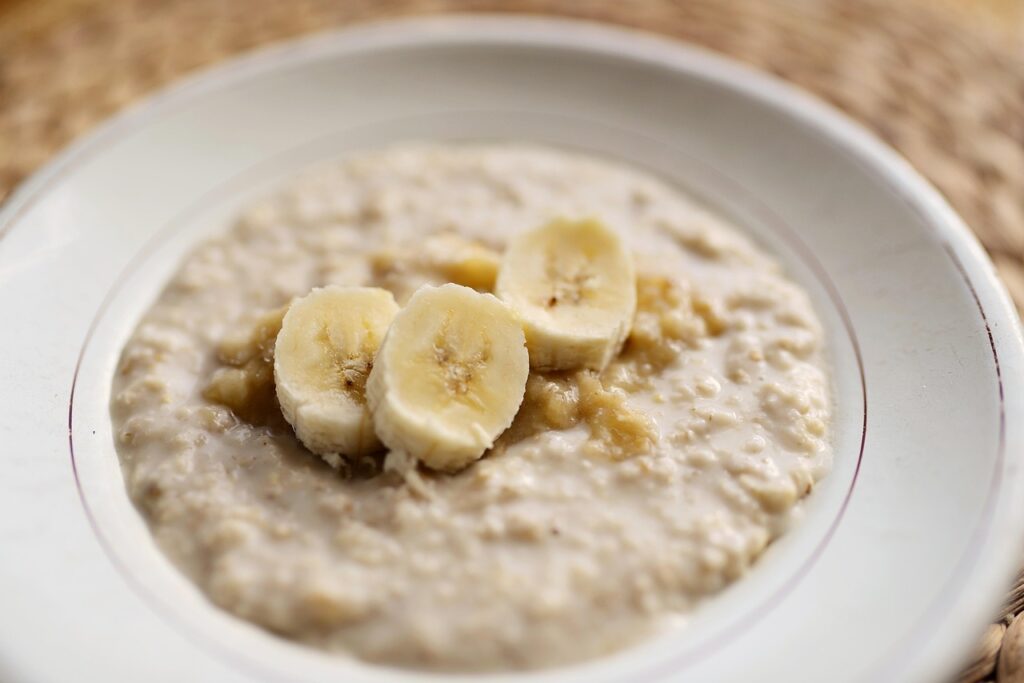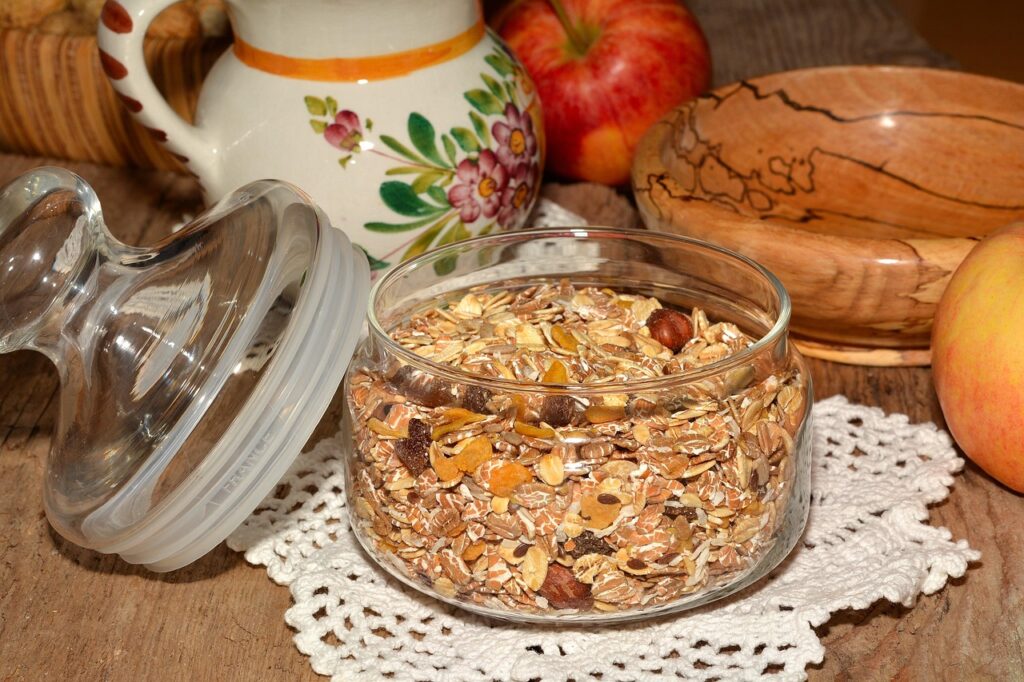
The long-held adage, “Breakfast is the most important meal of the day,” has been ingrained in our minds for generations. It’s a myth so pervasive that official nutrition guidelines still recommend it, claiming it aids in weight loss and that skipping it can increase the risk of obesity. This widespread belief often leads to guilt or confusion for the up to 25% of Americans who regularly forgo their morning meal.
However, a growing body of high-quality scientific studies is beginning to challenge this universal advice, prompting us to re-evaluate whether missing breakfast truly harms our health or makes us gain weight. The narrative is shifting from a rigid adherence to breakfast to a more nuanced understanding of individual needs and metabolic responses. This article aims to cut through the conventional wisdom and explore the compelling reasons why skipping breakfast might not be the health detriment many have been led to believe.
Let’s embark on an evidence-based journey to uncover the truths about breakfast, examining the science behind its perceived importance, the real impact of skipping it, and how it aligns with modern approaches to health and wellness. Prepare to have some long-standing dietary assumptions thoroughly re-examined.

1. **The ‘Most Important Meal’ Myth Debunked**The long-standing declaration that “Breakfast is the most important meal of the day” has deeply permeated societal consciousness, often perceived as a healthy, almost mandatory ritual surpassing other meals in significance. This myth continues to be reinforced by official nutrition guidelines, which typically advocate for breakfast consumption, linking it to benefits like weight loss and suggesting that skipping it elevates the risk of obesity. This widespread belief has shaped public health messages for decades, making it a difficult concept to challenge.
The foundations of this claim, however, are now being critically re-examined by new, high-quality scientific investigations. These studies are beginning to unravel the universal advice that everyone *must* eat breakfast, proposing a more flexible perspective on meal timing. The traditional emphasis on breakfast as an absolute necessity is being tempered by an understanding that its perceived benefits may not be as direct or unique as once thought.
Ultimately, the evolving scientific consensus suggests that there is nothing intrinsically “special” about breakfast that sets it apart from other meals in terms of metabolic benefit. The idea that it automatically “kick-starts” your metabolism or prevents later overeating is being re-evaluated. This fresh outlook encourages individuals to listen to their own bodies and dietary preferences, rather than adhering rigidly to a meal timing rule that may lack robust scientific backing for everyone.
Read more about: Unveiling Culinary Brilliance: 15 Michelin-Inspired Kitchen Hacks That Will Transform Your Home Cooking
2. **Observational Studies vs. Real Science: Causation vs. Correlation**It is undeniably true that numerous observational studies have consistently shown a correlation between breakfast consumption and better health outcomes. For instance, individuals who habitually eat breakfast often exhibit a lower likelihood of being overweight or obese, and they tend to have a reduced risk of developing several chronic diseases such as type 2 diabetes, metabolic syndrome, and cardiovascular issues. These findings have historically led many health experts to advocate for breakfast as a cornerstone of a healthy lifestyle.
However, a crucial distinction must be made regarding the nature of these studies. As “observational studies,” they can only reveal associations or correlations between breakfast eating and health markers; they cannot definitively establish a cause-and-effect relationship. This means that while people who eat breakfast *tend* to be healthier, it doesn’t automatically prove that breakfast itself is the direct *cause* of their improved health. The link could be attributed to a myriad of other underlying factors.
Indeed, the observed health benefits in breakfast eaters are more likely explained by a cluster of other healthy lifestyle habits. People who prioritize breakfast often also adhere to a healthier overall diet, incorporating more fiber and micronutrients, and typically engage in regular physical activity while avoiding detrimental habits like smoking or excessive alcohol consumption. It is these broader healthy behaviors, rather than the isolated act of eating breakfast, that probably account for the statistical differences, a conclusion increasingly supported by more rigorous experimental research.
3. **Skipping Breakfast Does Not Harm Your Metabolism**The persistent assertion that consuming breakfast “kick-starts” your metabolism has long been a driving force behind its perceived importance, particularly in discussions about weight management. Proponents of this view often refer to the thermic effect of food, which describes the slight increase in calorie expenditure that naturally occurs as the body digests, absorbs, and processes nutrients. This mechanism, they argue, makes breakfast indispensable for an active metabolic rate throughout the day.
Despite this popular belief, the concept that breakfast uniquely “jump-starts” metabolism is largely a myth without strong scientific evidence. The reality is that the total amount of calories burned over a full 24-hour cycle is primarily determined by the overall energy intake throughout the day, irrespective of when or how frequently meals are consumed. The body’s metabolic machinery operates on a cumulative basis, adapting to the total caloric load rather than the timing of the first meal.
Rigorous studies have conclusively demonstrated that there is no significant difference in the total calories burned over a 24-hour period between individuals who habitually eat breakfast and those who consistently skip it. This finding directly contradicts the widespread notion that breakfast provides a unique metabolic advantage. Therefore, whether you choose to eat or skip your morning meal, it has no direct bearing on your body’s daily caloric expenditure, debunking a significant piece of breakfast folklore.
4. **Dispelling the Myth: Skipping Breakfast Does Not Cause Weight Gain**It might appear counterintuitive, but the widespread belief that skipping breakfast inevitably leads to weight gain is a common concern for many. This theory often posits that foregoing the morning meal will induce intense hunger, causing individuals to overeat at subsequent meals, particularly lunch, and snack excessively later in the day. The assumption is that this compensatory eating will outweigh any initial calorie deficit, thereby leading to an increase in body weight.
While it is true that individuals who skip breakfast often report feeling hungrier and tend to consume more at their subsequent lunch meal, this increased intake has consistently been shown *not* to be enough to fully compensate for the calories missed at breakfast. In fact, numerous studies have revealed that skipping breakfast can actually lead to a net reduction in overall daily calorie intake, sometimes by as much as 400 calories per day. This outcome is quite logical, as you are effectively eliminating an entire meal from your daily diet.
Moreover, the “eat/skip breakfast dilemma” has been directly investigated in high-quality randomized controlled trials, offering robust evidence. One notable 4-month study involving 309 overweight or obese men and women found no significant difference in weight loss or gain between groups instructed to eat breakfast versus those advised to skip it. This compelling research, supported by other similar findings, strongly indicates that meal timing, specifically regarding breakfast, does not inherently dictate weight outcomes.

5. **Skipping Breakfast as a Gateway to Intermittent Fasting**Far from being a detrimental habit, skipping breakfast is a fundamental practice within several increasingly popular intermittent fasting protocols. This dietary strategy involves cycling between periods of eating and voluntary fasting, and it has garnered significant attention for its potential health benefits. A prime example is the 16/8 method, which typically entails a 16-hour overnight fast followed by an 8-hour eating window. For many practitioners, this eating window often begins around lunchtime and concludes by dinner, naturally incorporating the omission of breakfast.
Intermittent fasting, by consciously extending the period without food, has been extensively researched and shown to offer numerous advantages for health and wellness. These benefits include an effective reduction in overall calorie intake, which directly contributes to weight loss, and significant improvements in various markers of metabolic health. By structuring meal times, intermittent fasting can also simplify dietary adherence and encourage a more mindful approach to eating.
However, it is critically important to acknowledge that intermittent fasting, and by extension, skipping breakfast, may not be universally suitable or beneficial for everyone. Individual responses to fasting protocols can vary widely. While some individuals may experience profound positive effects, others might encounter adverse symptoms such as headaches, noticeable drops in blood sugar, feelings of faintness, or difficulties with concentration. Therefore, personal physiological response and professional consultation are essential considerations before adopting such an eating pattern.

6. **Improved Insulin Sensitivity Through Fasting**One of the most noteworthy health advantages linked to intermittent fasting, a regimen often initiated by skipping breakfast, is a measurable improvement in insulin sensitivity. Insulin, a vital hormone, plays a central role in regulating blood glucose levels by signaling cells to absorb sugar from the bloodstream for energy or storage. Enhanced insulin sensitivity means that your body’s cells respond more efficiently to insulin, requiring less of the hormone to achieve the desired effect.
This heightened cellular responsiveness is a critical factor in maintaining robust metabolic health. Improved insulin sensitivity is directly associated with a reduced risk of developing insulin resistance, a condition where cells become less responsive to insulin, leading to elevated blood sugar levels and an increased predisposition to type 2 diabetes. By extending the fasting window through breakfast skipping, the body experiences prolonged periods without glucose intake, allowing insulin levels to decrease and cells to “rest,” thereby enhancing their sensitivity.
For many individuals seeking to optimize their metabolic function, incorporating breakfast skipping into their daily routine can serve as a practical and accessible method to achieve these longer fasting durations. This shift can contribute significantly to better glucose control, more stable energy levels, and overall improvements in metabolic well-being. It highlights a profound physiological benefit that challenges the conventional narrative surrounding the necessity of breakfast for everyone.

7. **Enhanced Fat Utilization for Energy**When an individual chooses to skip breakfast, especially as part of a deliberate intermittent fasting strategy, their body extends its period of not receiving energy from external food sources. During this extended fasting state, the body often undergoes a crucial metabolic shift: it transitions from primarily burning carbohydrates (glucose) for fuel to increasingly tapping into its stored fat reserves. This process is known as enhanced fat utilization or promoting metabolic flexibility.
By encouraging the body to access and combust stored fat more readily, this metabolic adaptation can be profoundly beneficial for weight management and improving body composition. It trains the body to become more efficient at burning its own fat for energy, rather than constantly relying on a fresh supply of glucose from meals. This shift means that fat becomes more accessible for energy production throughout the day, even during non-fasting periods.
This mechanism is a core principle behind the fat loss and energy benefits frequently lauded in discussions of intermittent fasting. It suggests that prolonged periods without food, like those achieved by regularly skipping breakfast, can condition the metabolism to become more adaptable and resilient. This metabolic flexibility empowers the body to thrive on whatever energy source is available, moving away from a dependence on frequent eating and optimizing its internal energy management systems.
Building on the foundational understanding of how skipping breakfast aligns with modern dietary strategies, we now delve into additional, specific health benefits, along with crucial considerations for individuals and the paramount importance of personalized nutrition. The shift from rigid meal timing rules to a holistic view of diet quality and individual needs is pivotal for sustainable health.
Read more about: The Great American Pasta Place Duel: Top 15 as Told by Repeat Customer Rates (Prepare to Be Shocked)

8. **Reduced Inflammation: A Silent Health Ally**Beyond metabolic improvements, emerging research indicates that extended periods of fasting, a practice inherently embraced when skipping breakfast, may contribute to a measurable reduction in systemic inflammation within the body. Chronic inflammation is a silent perpetrator behind numerous contemporary health challenges, including cardiovascular diseases, autoimmune conditions, and metabolic disorders. By providing the digestive system with periods of rest, the body may redirect its resources towards repair and anti-inflammatory processes.
The precise mechanisms through which fasting impacts inflammation are still under active investigation, but theories suggest it involves modulating immune cell activity and altering inflammatory pathways. This means that strategically skipping your morning meal could offer a simple, accessible way to potentially temper the inflammatory responses that can silently undermine long-term health. It represents another compelling benefit that challenges the conventional wisdom surrounding breakfast’s universal necessity.
It’s important to frame this within the broader context of intermittent fasting, where reduced inflammation is a frequently cited advantage. The body’s ability to cycle through fed and fasted states appears to foster a more balanced and less reactive immune system, moving away from chronic low-grade inflammation that often accompanies constant nutrient availability. Therefore, for those seeking ways to naturally mitigate inflammatory responses, incorporating breakfast skipping into a mindful eating pattern could be a valuable consideration.
9. **Increased Autophagy: Cellular Renewal at Work**One of the most profound biological processes potentially enhanced by skipping breakfast, particularly as part of an intermittent fasting regimen, is autophagy. Derived from Greek words meaning “self-eating,” autophagy is a natural and highly regulated cellular mechanism where the body systematically cleans out old, damaged, or dysfunctional cells and recycles their components for energy or new cell construction. It is essentially the body’s internal detoxification and cellular renewal system.
This cellular housekeeping is vital for maintaining optimal health, protecting against chronic diseases, and even contributing to anti-aging processes. By extending the fasting window through breakfast skipping, even for a few times per week, you provide your body with the opportunity to activate and ramp up autophagy. When food intake is absent, cells are prompted to seek internal resources, triggering this essential cleansing and recycling process.
Enhancing autophagy helps your body get rid of cellular debris, damaged proteins, and worn-out organelles, making way for healthier, more efficient cells. This process is increasingly recognized for its role in preventing neurodegenerative diseases, improving metabolic health, and boosting overall cellular resilience. Thus, the simple act of foregoing breakfast can become a powerful, natural strategy to support your body’s inherent ability to rejuvenate and protect itself at a microscopic level.

10. **Other Practical Benefits: Time-Saving and Dietary Flexibility**Beyond the significant physiological advantages, the practice of skipping breakfast offers practical benefits that seamlessly integrate into a modern, often hectic lifestyle. One immediately apparent advantage is the substantial time-saving it affords in the mornings. For many, the rush of daily routines leaves little room for elaborate meal preparation, leading to either skipped meals or unhealthy, rushed choices.
By consciously choosing to skip breakfast, individuals can reclaim this time, dedicating it to other priorities such as exercise, extended sleep, or simply a more relaxed start to their day. This practical convenience can alleviate morning stress and streamline daily schedules, transforming a perceived nutritional omission into a strategic lifestyle enhancement. It underscores how dietary choices can align with personal efficiency and well-being.
Furthermore, skipping breakfast introduces a valuable degree of dietary flexibility. By consolidating daily eating into a shorter window, individuals may find they can enjoy larger, more satisfying meals later in the day without exceeding their overall caloric goals. This approach can be particularly appealing for those who struggle with restrictive eating or prefer substantial lunch and dinner options. This flexibility empowers individuals to tailor their eating patterns to their unique hunger cues, social engagements, and personal preferences, fostering a more sustainable and enjoyable relationship with food.

11. **Potential Drawbacks: Navigating Hunger and Unhealthy Choices**While the benefits of skipping breakfast are compelling, it is equally crucial to acknowledge and understand its potential drawbacks, as this approach is not without its challenges for everyone. One of the most commonly reported issues is intense hunger that can arise later in the day. For some individuals, forgoing the morning meal can lead to an increased appetite, making it harder to make healthy food choices at subsequent meals, particularly at lunch.
This heightened hunger can sometimes result in overeating or succumbing to cravings for less nutritious, high-calorie options to compensate for the missed breakfast. This compensatory eating can potentially negate any calorie deficit achieved by skipping the first meal, and in some cases, lead to an overall increase in daily calorie intake if not managed mindfully. It underscores the importance of listening to one’s body and planning subsequent meals carefully.
Moreover, some research suggests that skipping breakfast may induce certain metabolic changes that could be problematic for specific individuals. Studies have indicated that on “breakfast-skipping days,” some people may experience increased blood glucose concentrations and higher markers of inflammation and insulin resistance after eating lunch. Additionally, some researchers propose that fasting might reduce “metabolic flexibility,” meaning the body could become less efficient at switching between burning carbohydrates and fats for energy. These potential shifts highlight the need for individual assessment and adaptation.

12. **Key Considerations for Specific Individuals and Health Conditions**It is paramount to recognize that while skipping breakfast or practicing intermittent fasting can offer benefits for many, it is not a universally suitable approach. Certain individuals and those with specific health conditions should exercise caution or avoid this dietary pattern altogether. For example, individuals who may experience adverse symptoms such as headaches, noticeable drops in blood sugar, feelings of faintness, or difficulties with concentration should reconsider this approach.
For those actively trying to conceive, or who are pregnant or breastfeeding, skipping breakfast is generally not advised. These periods demand consistent nutrient intake to support both maternal health and fetal/infant development. Boosting fertility, and supporting the energy-intensive processes of conception and lactation, requires a steady supply of micronutrients like zinc, omega-3s, and iron, which can be challenging to obtain if meals are frequently skipped.
Competitive athletes represent another group for whom skipping breakfast might be detrimental. Their performance often relies on adequate fuel intake, and consistently training in a fasted state may hinder performance on game day or in high-intensity training sessions. Furthermore, individuals managing diabetes and taking medications that lower blood sugar must be particularly cautious, as skipping meals can lead to dangerous episodes of hypoglycemia. Conversely, if experiencing illness, consistent nourishment is critical to support recovery, making breakfast skipping ill-advised. Consulting a healthcare professional before making significant dietary changes is always recommended for these groups.
Read more about: Mastering the Long Haul: 12 Exceptional Pickup Trucks with 8-Foot Beds You Need to Know

13. **The Primacy of Personal Preference in Meal Timing**Amidst the diverse scientific findings and evolving dietary trends, one truth consistently emerges: the ultimate decision regarding breakfast consumption boils down to deeply personal preference and individual physiological response. There is no inherent “magic” in breakfast that dictates universal benefits or detriments. The notion that breakfast uniquely “jump-starts” your metabolism or automatically prevents weight gain has largely been debunked by higher-quality studies, reinforcing that its timing is often secondary to overall dietary habits.
If you genuinely feel hungry in the morning, and eating a nutritious breakfast energizes you and helps manage your appetite throughout the day, then embracing this meal is the right choice for you. A protein-rich breakfast, for instance, can be an excellent strategy for satiety and stable energy levels. The key is to listen to your body’s authentic hunger cues and to honor them with wholesome, balanced food choices. Forcing yourself to eat when you have no appetite may disrupt natural bodily rhythms.
Conversely, if you wake up without hunger, feel perfectly energized without a morning meal, and find that skipping breakfast naturally fits your lifestyle and helps you maintain your health goals, then there is no scientific reason to force it. The evidence is clear: for many, skipping breakfast does not negatively impact health outcomes. This flexibility allows individuals to align their eating patterns with their natural rhythms and preferences, creating a more sustainable and enjoyable approach to nutrition.

14. **The Indispensable Role of Overall Food Quality**While the debate around meal timing, including breakfast, captures significant attention, the overarching consensus in nutritional science points to an even more critical factor: the quality of your overall diet. Regardless of whether you choose to eat breakfast, skip it, or practice intermittent fasting, the nutrient density and composition of the foods you consume throughout your eating windows are arguably the most influential determinants of your health. Simply eating breakfast, for example, is not enough if that meal consists of highly processed, sugary options.
The impact different breakfasts can have on your metabolism underscores this point perfectly. An ideal breakfast, rich in protein, healthy fats, and fresh plant foods such as vegetables and fruits, supports insulin sensitivity, satiety, and sustained energy far more effectively than a breakfast laden with refined sugars and empty calories. It’s about setting your body up for success with nutrient-dense choices that fuel cellular function and promote metabolic health.
Ultimately, research consistently suggests that for optimal well-being, the primary focus should be on maximizing the nutritional value of every meal and snack. This means prioritizing whole, unprocessed foods and listening attentively to your body’s true signals of hunger and fullness, rather than fixating excessively on specific meal times or frequencies. A truly healthy eating pattern integrates quality food choices, mindful eating, and an understanding that if you feel dizzy, weak, overly hungry, or unfocused, it is indeed time to nourish your body with wholesome provisions.
Read more about: Fact vs. Fiction: 14 Historical Myths You Probably Still Believe
Cultivating a truly healthy eating pattern extends beyond mere meal timing; it encompasses a holistic approach to nutrition and lifestyle. To support your journey, consider incorporating these practical tips: always listen to your body’s hunger and satiety cues, emphasizing protein-rich foods (aiming for 26 grams or more with your first meal), consuming plenty of fiber from diverse sources, engaging in thoughtful meal planning to avoid impulsive, unhealthy choices, and diligently avoiding foods with added sugar, hydrogenated fats, and refined grains. Additionally, staying well-hydrated, effectively managing stress, and prioritizing adequate sleep are foundational pillars that bolster your metabolism and overall well-being, irrespective of when you choose to break your fast.







